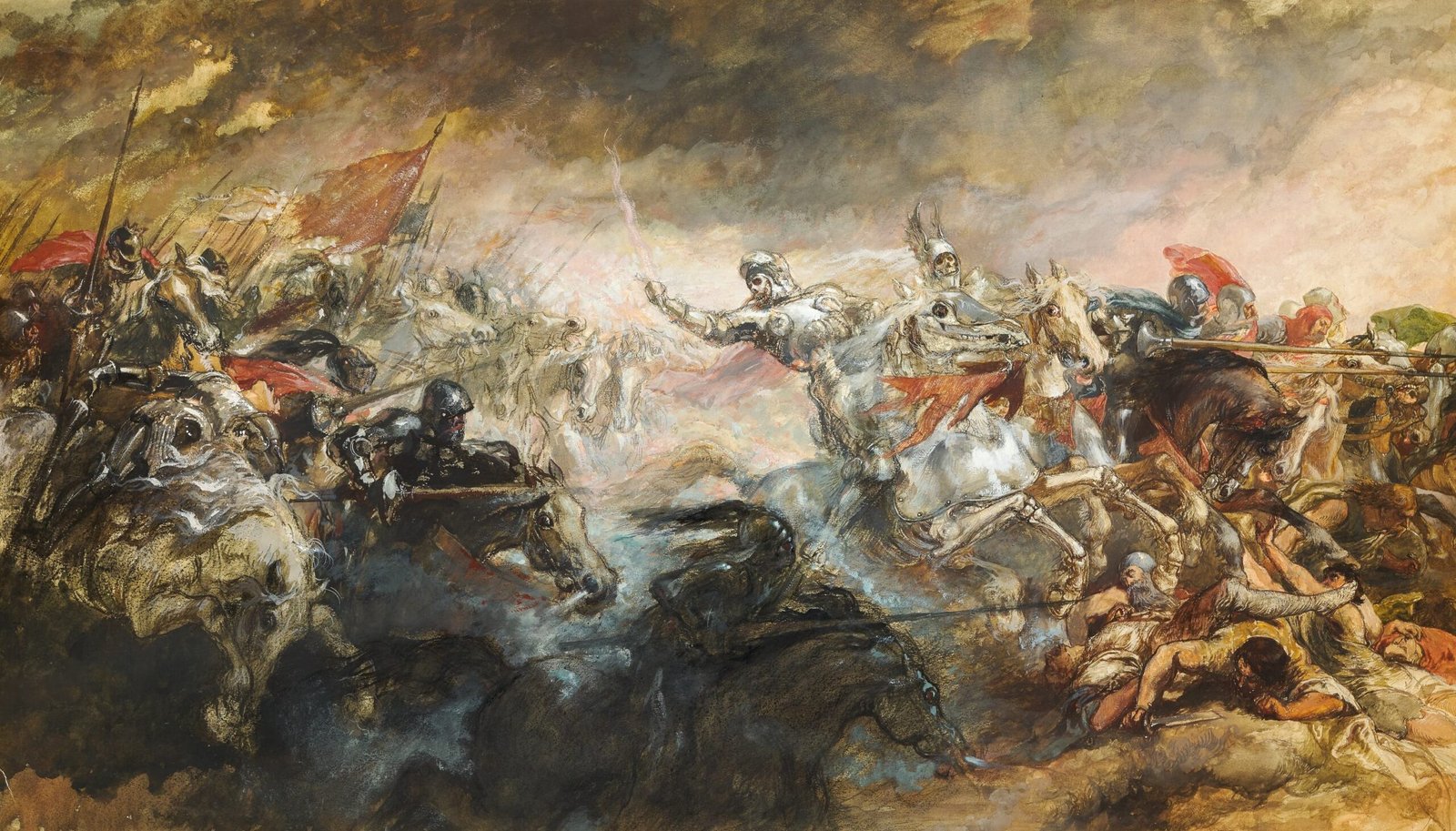
William James, an American philosopher, historian, and one of the first psychologists to explore the topic of war, published a seminal essay on “The Moral Equivalent of War” [1]. In his article, written in 1906 and published in 1910, just before he died, James explains the philosophical problem of war and its effect on people and societies.
With the current Ukraine-Russian conflict, his words—albeit written more than a hundred years ago—still echo true.
James, a pacifist, begins his essay by explaining the virtue of war. War, he explains, is an essential and integral part of our human nature throughout history, “Our ancestors,” writes James, “have bred pugnacity into our bone and marrow, and thousands of years of peace won’t breed it out of us”[1].
War is also a powerful catalyst for human growth. It creates heroes and celebrates courage, it makes people stronger, tougher, and more resilient, and it cultivates strongly-tied camaraderie as it unites and integrates people and nations under a common flag. In addition to supporting human growth by adding discipline, purpose and altruism, war efforts advance science in a way that is not equivalent to any other endeavor.
Yet, above all, war answers a basic psychological need to work shoulder to shoulder towards a common goal that is greater than the hedonistic and mundane life we tend to live.
Since the beginning of the war in Ukraine, these virtues have been easy to discern. While Putin and, to a lesser extent, the rest of the world expected the Ukrainians to yield when faced with a seemingly invincible opponent, the war has toughened the people. These people and their president exhibited exemplary bravery and perseverance, strengthening their newly found unity, pride and camaraderie under a common sovereign state flag that has now become increasingly harder to conquer. Yet waging war with all its virtues takes a heavy toll.
The terrible price of war
Although James states the numerable merits and virtues of war, he also stresses that “modern war is so expensive” that it is unbearable and irrational as it spreads tremendous pain, suffering, horror and gore.
While James’ 1910 essay—just prior to the two world wars—may feel outdated, modern psychologists like Steven Pinker [2] believe that war today is in decline mainly because it has become irrational an unprofitable to fight, and contemporary historians, such as Yuval Noah Harari, even goes so far as to say that in the 21st century the most profitable strategy to win a war a is “to keep your peace and let others do the fighting for you” [3]*.
This brings us to James’s philosophical conundrum:
1. War is vital for human growth and makes us tougher, stronger, and more united.
2. War is terrible. It is full of unbearable pain and suffering.
3. Without war, our life is “flat degeneration”. A constant desire for more comfort and pleasure.
Hence humankind needs to find a “Moral Equivalent” to war, an activity that would help us reach and experience the same virtuous heights of war without having to experience its horrors. A war that would end all wars.
However, writes James, “So far, war has been the only force that can discipline a whole community, and until an equivalent discipline is organized, I believe that war must have its way.”[1]
The quest for finding a “Moral Equivalent” to war
If we follow James’s logic, we need to find a “moral equivalent” discipline that would make war unnecessary. But what could that discipline be?
I believe the answer may be hidden in the Robbers Cave State Park in Latimer County, Oklahoma.
In 1954 social psychologist Muzafer Sherif brought a group of kids to a remote summer camp in Oklahoma’s Robbers Cave State Park, as part of a two-week experiment. Before the camp began, kids were randomly assigned into two groups, and each group was sent on separate activities for the first week. Naturally, the kids developed an attachment to their group, enforcing their group identity by selecting a distinct group name: the Eagles and the Rattlers, thus creating a clear in-group/out-group separation. After the first week, during a four-day competition between the two groups, verbal and physical conflicts quickly erupted.
Sherif’s attempt to reduce the friction by devising fun joint activities for the two groups backfired. Instead of bringing the two groups together, it led to extreme violence when the Eagles burned the Rattler’s flag and the Rattlers retaliated by overturning the Eagles’ cabins and beds and stealing private property.
Things were getting tense in the camp, but after two days, the researchers introduced a problem: The kids were told their water pipe high in the mountains was cut off by “vandals” and, as they quickly realized, it was impossible for a single group to fix the problem.
As the kids started to work together, the physical effort, the blazing sun and the emptying water canteens gradually eroded the boundaries between the groups. When, 45 minutes later, they finally cleared the obstacle, the kids were elated [4,5].
As the researchers continued to introduce Superordinate goals–goals that are important to multiple parties yet require cooperation to attain them successfully, such as a stuck food truck that needed pulling or or sharing resources to pay for a movie –the kids slowly came together. By the last day of camp, the meal seating arrangements were mixed, the kids asked to drive home together on the same bus, and on the drive home, one group shared their common money winnings to buy malt beverages for the other group.
Superordinate goals to end all wars – For our children’s sake
Sherif’s experiment may open the door to James’s “Moral Equivalent of War”. Following the Robbers Cave logic, it is no longer necessary to invade, kill or plunder. Instead, we need to construct another type of war –a Superordinate War, one that requires a shift of focus from one another to a common, much greater enemy.
Luckily for us, finding such an enemy is not difficult.
Recently, Germany decided to raise its defense budget by 2% of its GDP to prepare for the impending war against Russia [6]. This decision will most likely create a cascading effect igniting a new arms race across Europe and potentially the rest of the world.
What would the world look like if Germany and other countries directed their budget to fight against a much greater superordinate enemy – such as world Poverty? or world Hunger?
What would the world look like if Putin focused his energy and budget on fervently fighting against climate change, cleaner water, or any other of the 17 Sustainable Development Goals the UN has set forth [7] instead of fighting for more land and glory?
For the time being, this vision seems too distant and unachievable. Still, as William James concludes in his essay: “I have no serious doubt that [people] are capable of organizing such a moral equivalent …. It is but a question of time, of skillful propogandism, and of opinion-making men seizing historic opportunities. […] The only thing needed henceforward is to inflame the civic temper as part history has inflamed the military temper.”
My hope is that we would be able to inflame these superordinate wars making them crucial enough for us to join forces and fight together. So crucial that we would deem our current wars as a futile waste of valuable time and energy. If not for us then maybe for our children.
Notes:
*Harari explains that the only profitable war since the end of the cold war was the conquest of Crimea—where the Russian forces were able to take over power with no resistance –which only stresses the rule that no war is profitable unless it is not fought.
Resources:
[1] James, W. (1995). The moral equivalent of war. Peace and Conflict, 1(1), 17-26
[2] Pinker, S. (2011). The better angels of our nature: The decline of violence in history and its causes. Penguin uk.
[3] Harari, Y. N. (2017). Why It’s No Longer Possible for Any Country to Win a War.
[4] University of Oklahoma. Institute of Group Relations, & Sherif, M. (1961). Intergroup conflict and cooperation: The Robbers Cave experiment (Vol. 10, pp. 150-198). Norman, OK: University Book Exchange.
[5] Perry, G., (2018) The Lost Boys: inside Muzafer Sherif’s Robbers Cave experiment. Scribe Publications
[6] Reuters article – link
[7] The 17 Sustainable Development Goals – the United Nations – link







